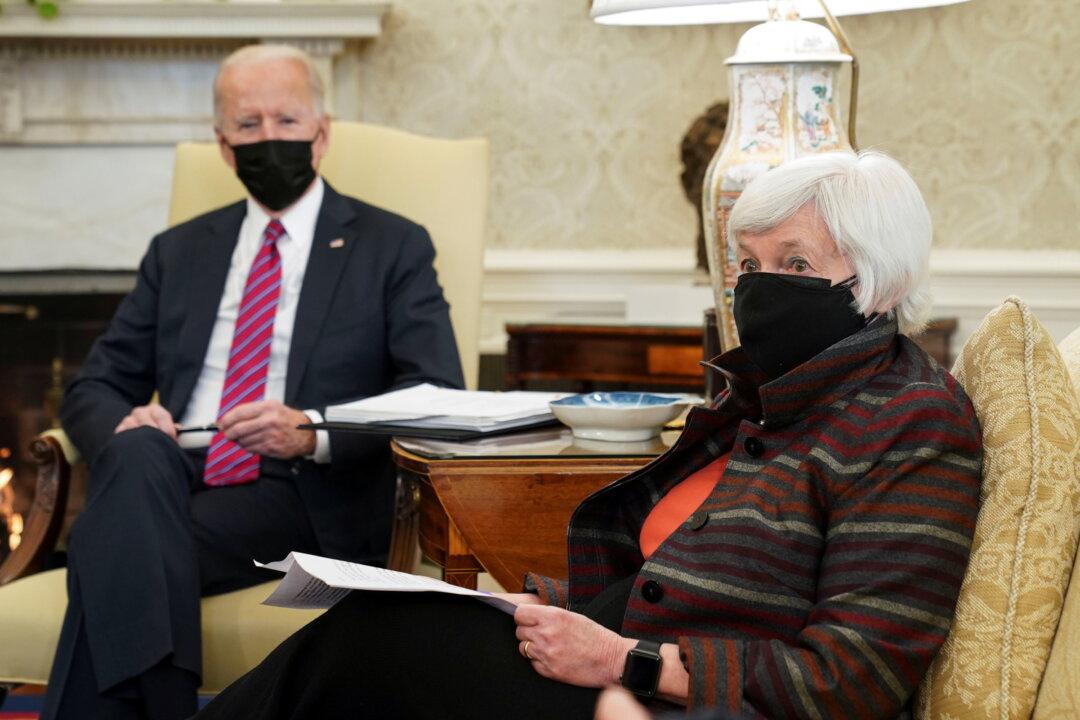WASHINGTON—Treasury Secretary Janet Yellen is urging other countries to support a global minimum tax rate for corporations, which is crucial for funding President Joe Biden’s infrastructure proposal, called the American Jobs Plan.
The Biden administration proposes substantial tax increases on U.S. corporations to pay for the $2.3 trillion plan aimed at boosting investment in infrastructure, clean energy, manufacturing, housing, and other programs.





